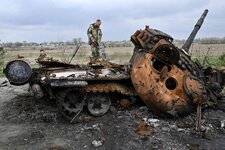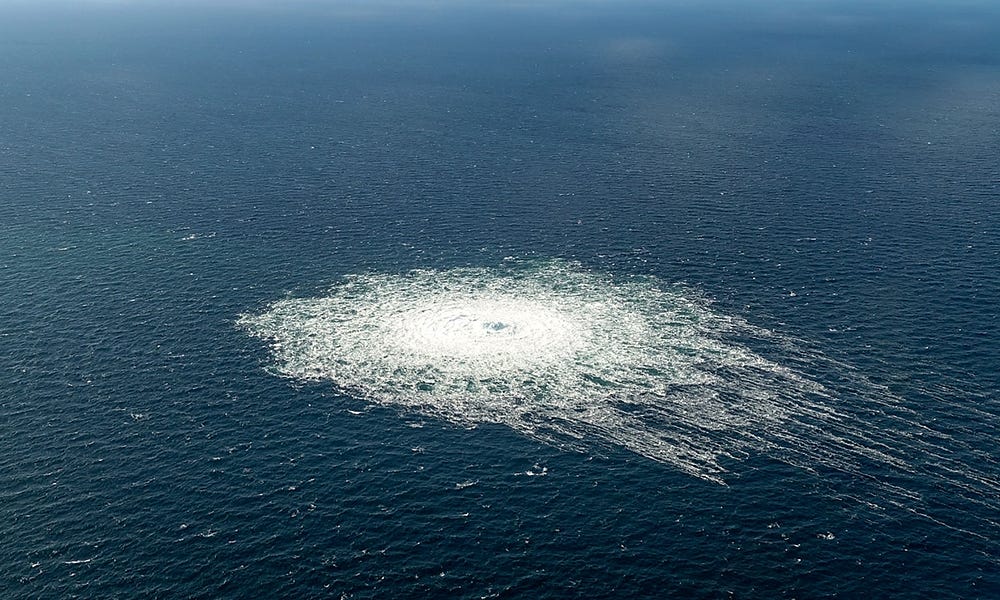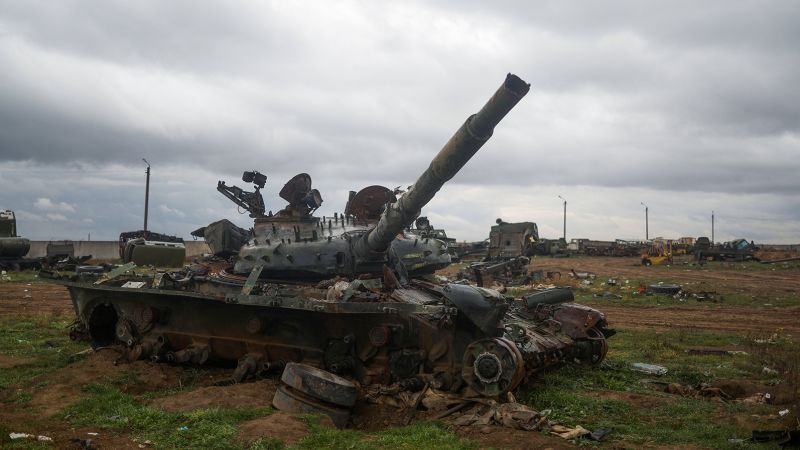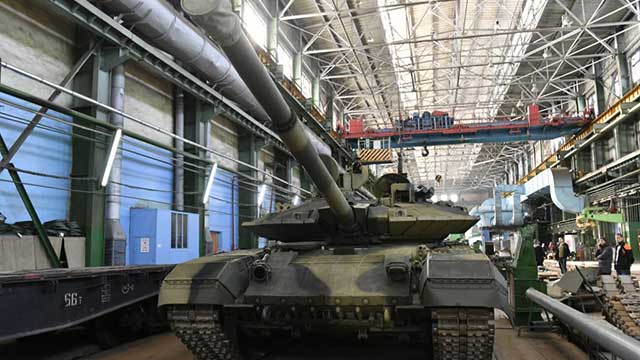Some years back, Russia outsourced some of their tank parts production. Modern Russian tank transmissions were produced in Italy. Advanced electronics were made in France. Due to sanctions on Russia, these sources are no longer available to the Russian military.
This is the problem with modern manufacturing. For example, Boeing orders lots of components from countries all over the world. When I worked at Boeing, we did lots of business with Russian engineering companies. Boeing had to do that, because other countries that purchase things demand that there be some kind of economic reciprocity in order to make up for the economic loss of buying foreign products. Boeing sold its airliners to Russian companies, so it needed to establish those relationships. I even once visited the headquarters of Boeing Russia back in the 1990s. They were an excellent source of engineering expertise for us, but that mostly dried up after Putin came to power. Russia became an unreliable business partner. That is happening to a similar extent with China these days.
Russian tank manufacturers likely purchased assembly kits for components in their tanks, and those components had to be machined and tested according to Russian specifications. Those assemblies would now need to be manufactured in Russia or the contracts transferred to some other country, such as China, North Korea, India, Iran, or other country that can be part of a newly formed secure supply chain. So this war is becoming a huge economic windfall for those countries, but it isn't clear to me that they can provide supplies that Russia needs quickly enough to be of use in its invasion plans. It often takes years for new supply chains to be formed. The West is certainly feeling some economic pinches from the loss of Russian supply chains (as barbos gleefully points out from time to time), but they are in a far better position than Russia to absorb the loss.




